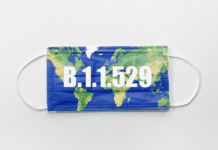 Daylight savings time may soon be a thing of the past, if 80 percent of European citizens have anything to say about it.
Daylight savings time may soon be a thing of the past, if 80 percent of European citizens have anything to say about it.
That’s the recent estimate of voters who think the time-honored tradition of the setting of the clocks forward and backward in time is, well, behind the times. All 28 member states of the European Union have received a recommendation to abolish the twice-yearly practice by the European Commission with “summertime all year round” as the end game. EU members and the European parliament would need to approve new legislation in order for the ditching of daylight savings to go into effect. As for the UK, it’s unlikely to make a move, if any, until it breaks from the EU next March.
Sprung from Benjamin Franklin’s propensity for playing chess into the wee hours and sleeping until noon (“When in Paris…”), the desire to capture time in a bottle has also long captured our imaginations. Here in the US, daylight savings has ebbed in and out of fashion at state and federal levels since World War I when energy conservation was a high priority for families and businesses. And while ditching daylight savings may seem like a bold move for the majority of Americans, many countries ditched daylight long ago, while daylight savings is a concept that doesn’t even exist elsewhere in the world, specifically in countries positioned near the tropics and equator where the candle burns at both ends—12 hours of daylight and nighttime—and where brighter summer months are already the norm. Time, as Einstein would say, seems to have “no independent existence apart from the order of events by which we measure it.”
“…the desire to capture time in a bottle has also long captured our imaginations.”
What Ditching Daylight Savings Means for Planners
Debates around the monetary “savings” aspect of daylight savings have been recently spurred on by a meta-analysis published in the “The International Association for Energy Economics” that found a mean energy savings of 0.34 percent during the days when daylight savings applied. “Extending daylight” meant more air conditioning and heating as people awakened to the coldest, darkest part of morning and went to bed later on average. Turning clocks forward in Indiana, for example, added an extra $9 million a year to household energy bills while also increasing emissions. Other reports have found an increase in heart attacks and traffic accidents when we meddle with the hands of time.
Is the EU on to something? Should we release time from the bottle? Perhaps, as one philosopher in Franklin’s time noted, we should focus less on opening the windows to let the light in and more on letting the darkness out.










